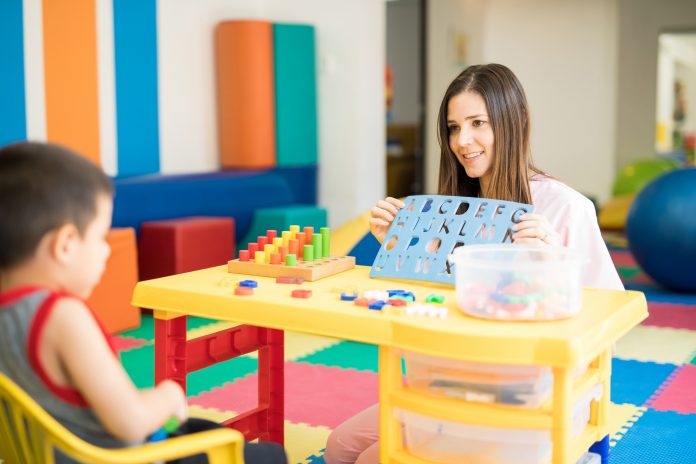Taking a system-wide approach for children and young people with speech, language and communication needs in England is the way ahead, argues Chief Executive of the Royal College of Speech and Language Therapists, (RCSLT), Kamini Gadhok MBE
As Chief Executive of the Royal College of Speech and Language Therapists (RCSLT), I’ve lost count of the number of times I’ve talked to the government about the importance of children’s speech, language and communication skills. The evidence is clear: the ability to communicate is a fundamental life skill, directly impacting on children’s wellbeing, their learning and their life chances. Without support, children who have difficulties communicating are at high risk of mental health problems, educational underachievement, poor employment prospects and possible involvement in the justice system.
These risks were highlighted in Bercow: Ten Years On, a review of provision for children and young people with speech, language and communication needs in England, published by RCSLT and I CAN in March 2018. The report found that the importance of speech, language and communication skills were widely underestimated, both among the public and decision makers.
So it’s been fantastic over the last year to see the Department for Education recognise the crucial importance of early language and communication and announce a number of new initiatives – such as the launch of the Chat, Play, Read campaign to encourage parents to talk to their babies and young children, and their partnership with Public Health England to ensure that children with delayed language or other communication needs are identified early on. This work is in its infancy but has the potential to make a real difference.
We must not forget, however, that 10% of children and young people – 1.4 million in the UK – have long-term speech, language and communication needs and will need specialist support throughout their childhood and beyond. Our 1st Anniversary Update to Bercow: Ten Years On makes clear that many of these children and young people are still not receiving the support they need. This is due in large part to over-stretched and under-funded speech and language therapy services: over the last few years, many services have been faced with an impossible combination of reducing funding and increasing demand.
It is not only the RCSLT who is saying this: Ofsted and the Care Quality Commission have reported on “unacceptably long waiting times” for therapy services, and the NHS Long Term Plan describes speech and language therapists as a workforce group “in short supply”.
Parents have also voiced their concerns: in a YouGov poll commissioned by the RCSLT and I CAN, 59% of parents of children and young people with speech, language and communication needs said they had to fight to get support for their children’s difficulties, and more than half had to wait longer than six months to get it.
There are some glimmers of hope. We welcome the publication of the NHS Long Term Plan and its ambitions to support prevention, early intervention and tackle health inequality. We were particularly encouraged that the plan recognises speech and language therapy as part of the new models of care which will bring together physical and mental health services for children and young people to provide holistic care which is age appropriate and closer to home. We hope that NHS England will work with us to make this model of care a reality for all children and young people in England. We see the move towards integrated care systems as an opportunity to realise this ambition, through promoting system leadership and improved joint working across health, social care and local authorities.
The announcement of a Leadership Board to clarify and communicate the principles which should underpin joint commissioning for children and young people with special educational needs and disability (SEND) is also a positive step. Given the cross-cutting nature of speech, language and communication needs, we are calling for the Board to have this as an explicit focus.
Above all, we need a system-wide approach to children’s communication, underpinned by the national leadership. That’s why we’re calling for a cross-government strategy to be developed for children, with speech, language and communication at its core, overseen by a cross-departmental ministerial group. The government has already established a ministerial group for children under-two. They must now take the bold step to extend this approach and give all children and young people the chance to fulfil their potential.
For more information about speech, language and communication needs and the role of speech and language therapists, take a look at the factsheets on the RCSLT website.
Kamini Gadhok MBE
CEO
Royal College of Speech and Language Therapists
Tel: +44 (0)20 7378 1200











